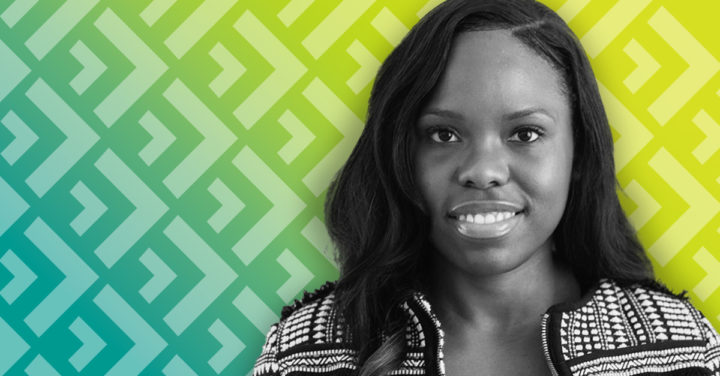
By Jelitza Phillips, aspiring ACIA
I still remember the mental pause I had when I first came across the question “Do you identify as a member of a visible minority?” during the onboarding process of my first job in Canada. That was five years ago. Prior to that, it was never really necessary for me to even consider whether I was a visible minority, or explicitly state my ethnic or cultural origin. I grew up in Jamaica – a tropical Caribbean island where well over 90% of the population is of Black or African descent. Having landed in Canada as an adult, it didn’t take long for me to realize that, for my entire life, I took my “Blackness” for granted. I had undervalued the privilege of being able to live, move and work freely without being judged for the colour of my skin.
If I’m being honest with myself, back then I didn’t really give much credit to Black History Month either. From my perspective – a Jamaican adolescent living in Jamaica – it seemed like an American concept too far removed from Caribbean or West Indian history for me to care much about. For some reason, slavery, colonialism, social inequity and other key aspects of Caribbean history felt more relatable than civil rights struggles and outright racial segregation.
“In the last few years, I’ve come to respect the meaning, message and motivation behind Black History Month. And as my years of living in Canada have progressed, so has my appreciation for the recognition of Black history, here and around the world.”
Many, including me, consider it a celebration. But even more so, it is a time for reflection. It’s more than just supporting Black-owned businesses – it’s also understanding the struggles they have faced in starting up and keeping their doors open. It’s not only a time to highlight Black excellence but also to understand the depth of perseverance behind the success. Above all, the most important thing for me during Black History Month and beyond is candid conversation and lifelong learning – both within the Black community and between Black persons and people of other races and ethnicities.
It was Dr. Martin Luther King Jr. who said, “In the end, we will remember not the words of our enemies, but the silence of our friends.” Back then, Dr. King spoke in the context of Americans failing to stand up against the discrimination being experienced by Black people and the trampling of their civil rights. Today, this quote resonates with me more than ever and corresponds well to the many feelings I get when I reflect on the prejudice I and my people have endured and continue to endure, simply because of our race.
Recently, I reflected on the various impactful organizations I associate with. I’m a member of the Seventh-day Adventist World Church; I’ve had a membership with three different CrossFit affiliate gyms over the past four years; and the insurance company I work for is owned by one of the largest banks globally. I’m also an Associate of the Society of Actuaries (ASA) and will soon be an Associate of the Canadian Institute of Actuaries (ACIA); I’m a member of the Toronto affiliate of the International Association of Black Actuaries (IABA); and technically, I’m also part of an invisible worldwide association of actuaries (because who doesn’t feel instant connection and excitement whenever they meet another actuary anywhere in the world?).
These organizations all have one thing in common – a sense of community. Community, in this context, is best described as a group of people sharing similar interests, who want to achieve something together. Community is where we find associates and colleagues. Community is where we find friends. So what happens when our friends don’t look anything like us? Diversity? Yes. Inclusion and equity? It depends.
It’s complicated because there is nothing we can do to change what has taken place in the past. It’s already happened – it’s history. But history shapes our present way of living and thinking, and thus becomes quite helpful when fully understood. Why, then, do so few colleagues and associates (“friends”) of Black people seek to understand our history and experiences? Some may still consider it best to avoid that touchy topic of race altogether. But if anything could make matters worse, it’s silence – especially the silence of those we consider our friends. I would hasten to consider Black History Month a free excuse to break the silence.
Having conversations about raw experiences and emotions will not only broaden perspectives and inform decisions but also deepen understanding, interracially and otherwise. In a practical sense, more people would come to understand why Black people all over the world cried tears of joy and pride when Barack Obama won the 44th presidency; or why we shed tears of pain and anguish when George Floyd was murdered. These are men most of us had never met – but in whom we could see some parts of ourselves and our families. You would understand why it was such an incredible moment of demarcation when both John Robinson and Roosevelt Mosley were elected the first Black presidents of the Society of Actuaries (SOA) and the Casualty Actuarial Society (CAS) respectively, for 2022-2023.
To bring it a little closer to home, you may understand why, at the workplace, you are automatically in a position of privilege while your Black colleague is simply not.
“These types of conversations offer inspiration to break the silence in another room – to offer advocacy, upliftment and support in efforts toward equity and inclusion for Black people.”
I must say I am quite proud of the progress we’ve made over the years in amplifying the voices of Black actuaries and aspiring actuaries within the profession, with augmented support and connections between IABA and the SOA and CIA. The volume of exposure and advancement of Black actuaries has notably increased over the last few years, and as efforts continue to evolve and expand, it’s well worth acknowledging our progress along the journey.
This year, for the month of February, many organizations – including my place of work – have invited prominent Black people to give keynote presentations and share in discussions from their unique perspectives, in efforts to stir inspiration and destroy stigma. Here in Canada, the CIA and IABA have partnered up for an evening of food, culture and connection in Toronto. In the virtual space, the SOA is sharing a series of authentic conversations with Black actuaries and students.
By all means, attend and support these events with an open mind, and listen keenly. For sure, watch movies and read books that shed light on the various chapters of Black history. But after the month ends, don’t remain silent. I encourage you, friend, to have ongoing conversations with the Black people in your organization and community about our present experiences, and how stereotypes and diminutive expectations continue to affect us today. Then, go on to amplify the lessons from these conversations, with your voice and with your actions.
And if you’re fearful that speaking up may do more harm than good, just remember, it’s not always people’s cruel actions that last; it’s also what the good people fail to do. We are hurt by the overt attacks of our enemies, but we are cut more deeply by the covert betrayal in the silence of our friends.
This article reflects the opinion of the author and does not represent an official statement of the CIA.
The following comments were shared by readers:
Vincent Hardy: Thanks for sharing Jelitza, hopefully the barriers of silence from our friends will be lowered or even removed!






Thanks for sharing Jelitza, hopefully the barriers of silence from our friends will be lowered or even removed!